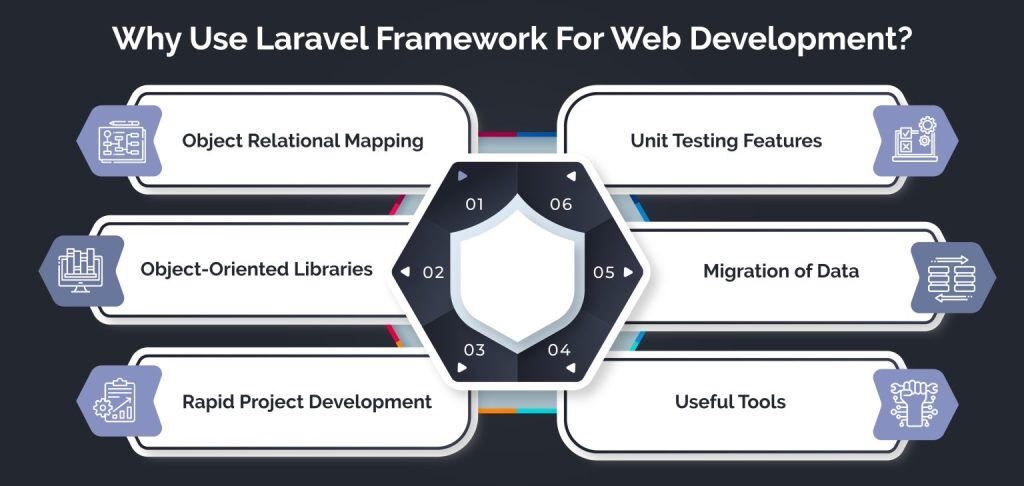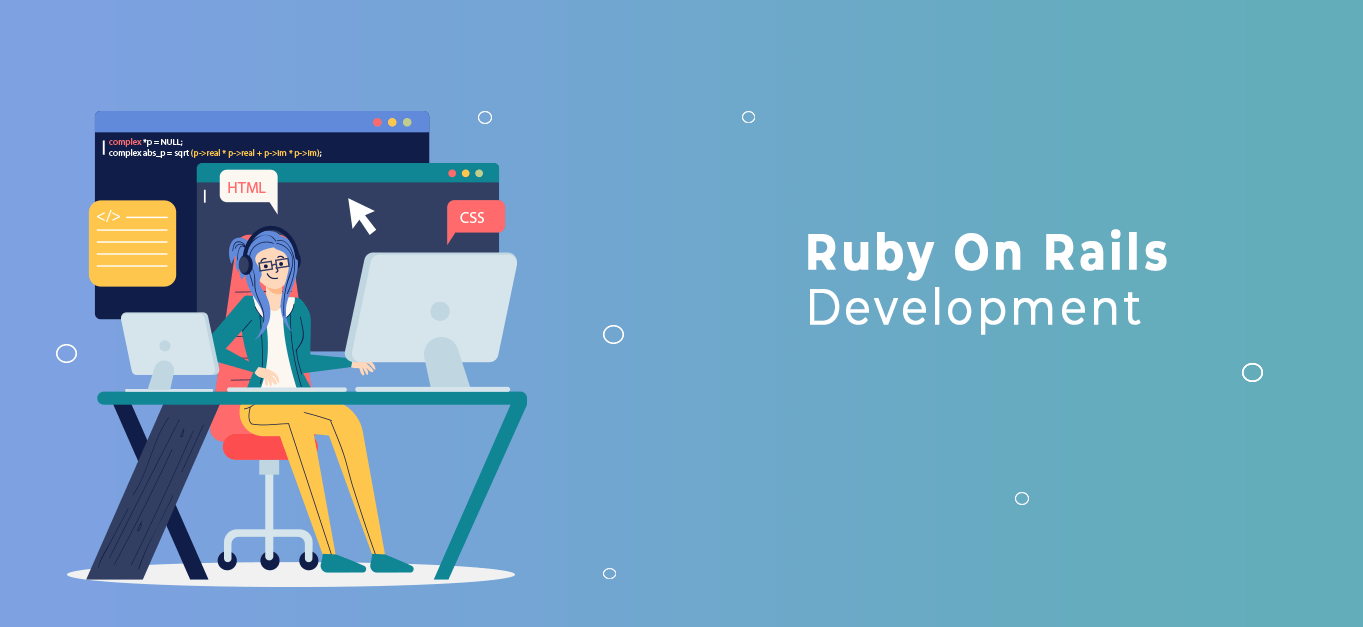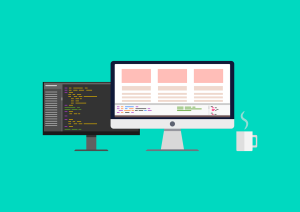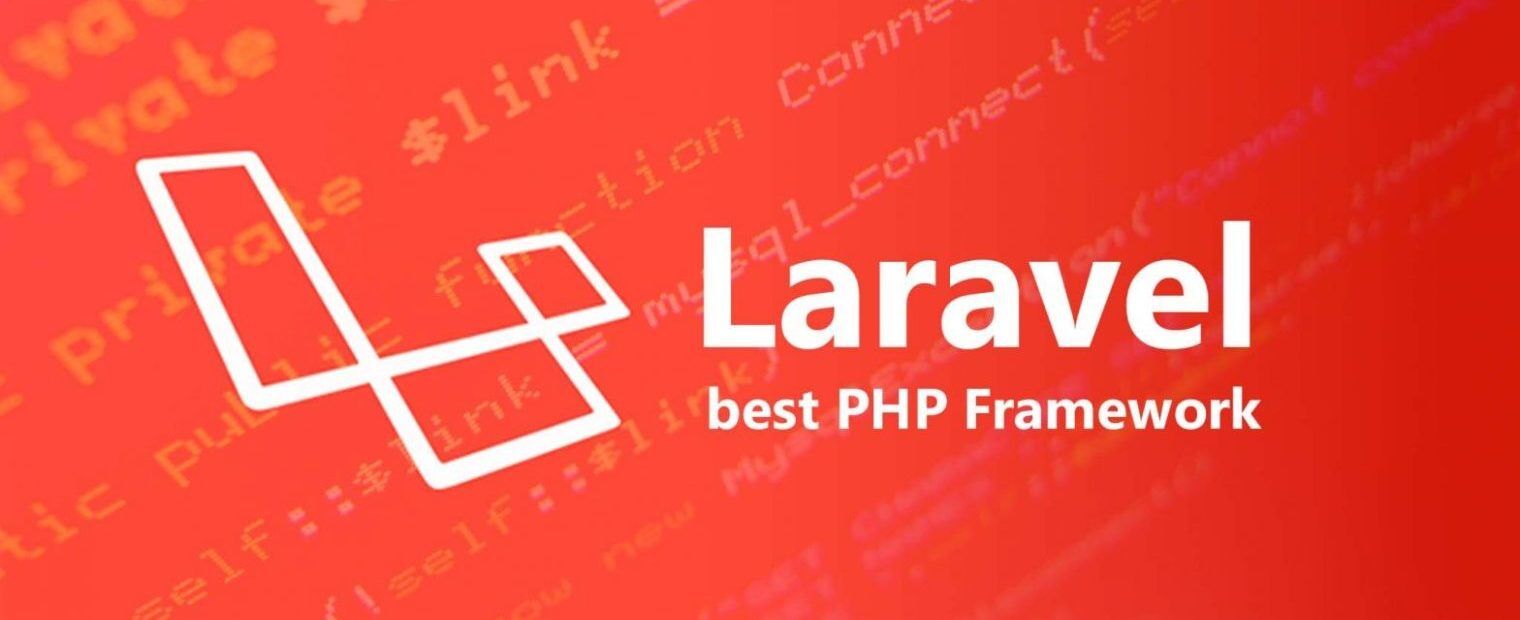Laravel Framework
Laravel framework is a PHP web framework which is free and open-source. It follows the model–view–controller (MVC) architectural pattern and is based on Symfony1. Laravel framework is widely recognized as one of the most popular PHP frameworks in the world for developing web applications, ranging from small to large-scale projects. With its robust and easily comprehensible nature, Laravel framework reuses various existing components of other frameworks, thereby enabling the creation of more structured and pragmatic web applications in a professional tone.
Laravel framework provides a refined and sophisticated syntax for constructing web applications, with the goal of maximizing productivity by minimizing repetitive code. The platform boasts robust built-in authentication and authorization features that simplify user authentication and access control. Laravel's Object-Relational Mapping (ORM) streamlines database interactions, allowing for the manipulation of database tables as objects. Migrations offer effortless management of database schema changes over time.
Laravel framework offers a wide range of convenient validation rules for form input validation, as well as seamless notification and email delivery to users. With Laravel framework, you can schedule tasks to run at specific intervals with ease. Prioritizing testing, the platform ensures the development of durable and dependable code. Real-time features can be implemented using Laravel's events and web sockets. Laravel framework, with its vast community of global developers, is a valuable asset to any professional operation.
Design and develop reliable, high-quality PHP applications using Laravel framework and Livewire. Integrate Laravel framework with Inertia to create a robust, monolithic frontend using React or Vue. Leverage Laravel framework as a solid backend API for your mobile or Next.js applications, and other frontends. With our starter kits, you can expedite your development and get started quickly.

The versatility of Laravel framework makes it an excellent choice for businesses of all sizes, from startups to enterprises. Some prominent companies that utilize Laravel for their web applications are Pfizer, Liberty Mutual Insurance, BBC, About You, DISQO, TourRadar, Magneto IT Solutions, and Unified InfoTech. In addition, Laravel framework is preferred by many other firms, including Torqued, Next Vacay, Conundrum Publishing, GiftBasketsOverseas.com, Labor Sync, Bloomy Lab, and Adeva. According to statistics, Laravel framework is most commonly used by companies with 1-10 employees and 1M-10M dollars in revenue.
Imagine building an application that can handle millions of users seamlessly. That's the kind of power Laravel gives you. With the right custom solutions at every level, the sky's the limit for what you can achieve. Don't let scalability hold you back - embrace Laravel's abilities and reach for the stars.

Ejaz Rasool
Software Team Manager
Ruby on Rails, commonly referred to as Rails, is an open-source web application framework developed in the Ruby programming language. Here are key insights into the customer experience with Rails:
Efficiency and Speed: Rails enables developers to create robust web applications swiftly. Its advanced features, such as table migrations and scaffolds, optimize the development process. Organizations value Rails for reducing application production time.
Structured Code Organization: Rails provides a default structure for code organization, enhancing workflow efficiency. It adheres to the Model-View-Controller (MVC) architecture and the “Don’t Repeat Yourself” (DRY) principle, promoting best practices in software development.
Mature Framework: Rails enjoys active support and is utilized by prominent companies including Airbnb, GitHub, Basecamp, Shopify, Soundcloud, and Goodreads.
In summary, Rails offers an efficient development experience, fosters best practices, and maintains its popularity in the realm of web application development.
Collecting data with Ruby involves several steps, especially for IoT applications. Ruby simplifies device communication with networking libraries like Socket. For more complex tasks, frameworks like EventMachine or Celluloid manage asynchronous programming and scalability. Ruby works with databases like MySQL and PostgreSQL for data storage. Use gems like Pandas or Daru for data analysis and visualization.
Real-time device communication often uses protocols like MQTT or WebSockets. Ruby frameworks like Faye or Action Cable support real-time interactions. Ensure secure communication with SSL/TLS and limit access to authorized users and devices. In summary, Ruby’s simplicity, expressiveness, and community-driven libraries make it a good choice for collecting and managing data in IoT applications.
Ensuring Business Continuity
Ruby on Rails supports business continuity through its inherent stability, scalability, rapid development capabilities, and robust maintenance practices. The framework's stability ensures that applications run smoothly and reliably, minimizing downtime and disruptions. Its scalability allows businesses to handle increased loads and user growth without compromising performance.
Rapid development is facilitated by Rails' convention over configuration philosophy, which accelerates the development process and reduces time to market. Additionally, robust maintenance practices, including a strong community support and regular updates, ensure that applications remain secure, up-to-date, and efficient over time. This combination of features makes Ruby on Rails an excellent choice for businesses looking to maintain continuous and efficient operations.
Enhancing Cybersecurity
Ruby on Rails (RoR) employs several practices to enhance cyber security, ensuring that web applications built with this framework are robust and resilient against various threats. One of the key practices is the use of strong parameter filtering, which helps prevent mass assignment vulnerabilities by requiring explicit declaration of which parameters are permitted. Additionally, RoR incorporates built-in protection against SQL injection attacks by using parameterized queries, which ensures that user input is properly sanitized before being executed in the database.
Furthermore, the framework includes Cross-Site Request Forgery (CSRF) protection by default, which helps prevent unauthorized commands from being transmitted from a user that the web application trusts. RoR also supports secure password storage by utilizing bcrypt, a hashing algorithm that makes it computationally expensive for attackers to crack passwords. Moreover, the framework encourages the use of HTTPS to encrypt data transmitted between the client and server, safeguarding sensitive information from being intercepted. By integrating these and other security measures, Ruby on Rails provides developers with a solid foundation to build secure web applications.

Django integrates a suite of security features designed to mitigate cyber threats. The framework's templating system automatically escapes potentially harmful characters, thereby minimizing the risk of XSS attacks. Nonetheless, developers must exercise caution when processing user-generated content within templates.
To prevent unauthorized form submissions, Django validates each POST request against a secret token, ensuring that malicious actors cannot exploit form replays with another user's credentials. The ORM in Django sanitizes database queries, effectively protecting against SQL injection vulnerabilities. Additionally, Django sets appropriate headers to counteract clickjacking threats. Utilizing HTTPS with Django further enhances security measures. While Django offers robust security mechanisms, it is imperative for developers to adhere to best practices and remain vigilant about new and evolving threats.
Shopify employs Ruby on Rails as its primary programming language, a strategic choice that enhances its speed and reliability over other eCommerce platforms. The Rails framework facilitates extensive customization, enabling developers to easily add or modify functionalities as required. For those interested in developing a Shopify app using Ruby on Rails, tools such as ngrok can be utilized to test local app changes within your Shopify store.














